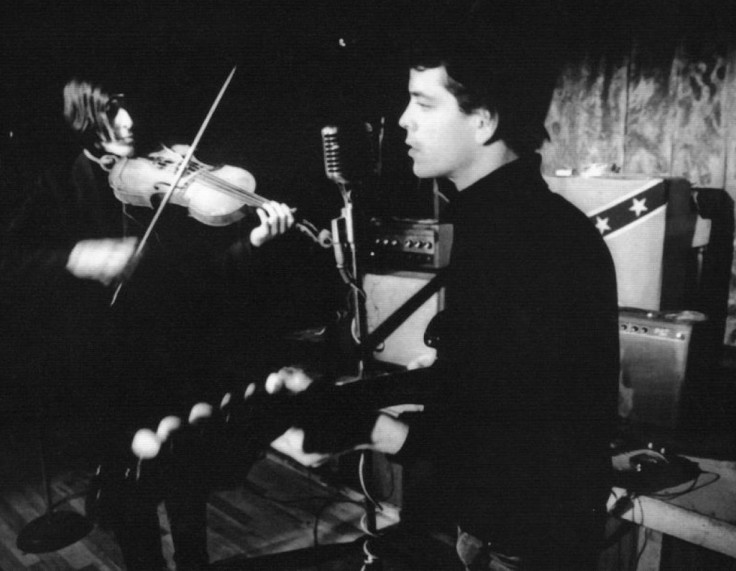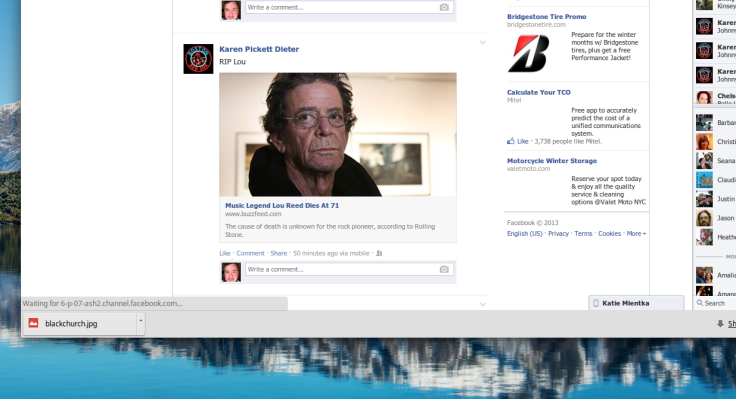Lou Reed, Rock Legend, Dies At 71 Of Unknown Causes

Lou Reed, a poet laureate of rock and roll, died Sunday of unknown causes several months after a liver transplant. He was 71.
In April, Reed had abruptly cancelled five concert dates for "unavoidable complications," before his wife Laurie Anderson informed the media of his condition. "It's as serious as it gets," she said. "He was dying. You don't get it for fun."
Although details of Reed’s death have not yet been released, Anderson praised the Cleveland Clinic of Ohio in April, for the apparent success of his liver transplant operation. "They put it [the new liver] in immediately and it started to work immediately. Every week it gets better,” she said.

Reed's work had been influenced by addiction to drugs and alcohol, most evident in the controversial 1967 song "Heroin." Reed once told an interviewer, "I take drugs just because, in the 20th century, in a technological age living in the city, there are certain drugs you have to take just to keep yourself normal like a caveman, just to bring yourself up or down. But to attain equilibrium you need to take certain drugs. They don't get you high even, they just get you normal."
After the Velvet Underground failed to become a commercial success in the 1970s, Reed left the group for a solo career in 1971 and released the hit "Walk on the Wild Side" the next year. After releasing a double album in 1975 comprised of feedback loops he titled Metal Machine Music, he said, "No one is supposed to be able to do a thing like that and survive." Following the death of two close friends from cancer, Reed released his sixteenth solo record in 1992 Magic and Loss, which deals with the subject of mortality.
Reed also produced Andy Warhol's Factory and was one of the original voices of punk.
Below is a video uploaded to YouTube containing Lou Reed's signature track, "Walk On The Wild Side."
.
Published by Medicaldaily.com



























